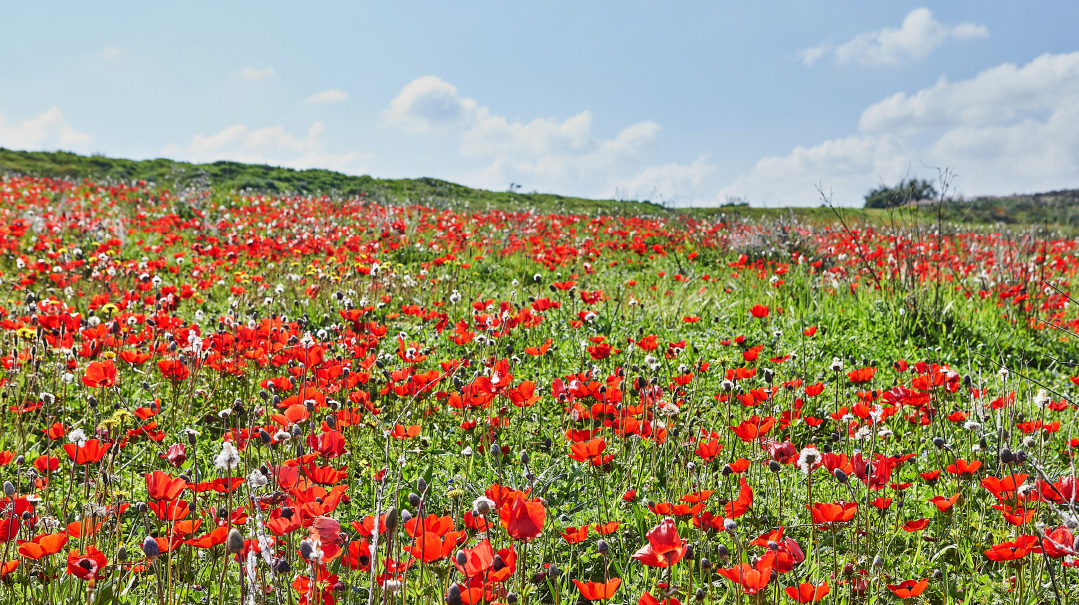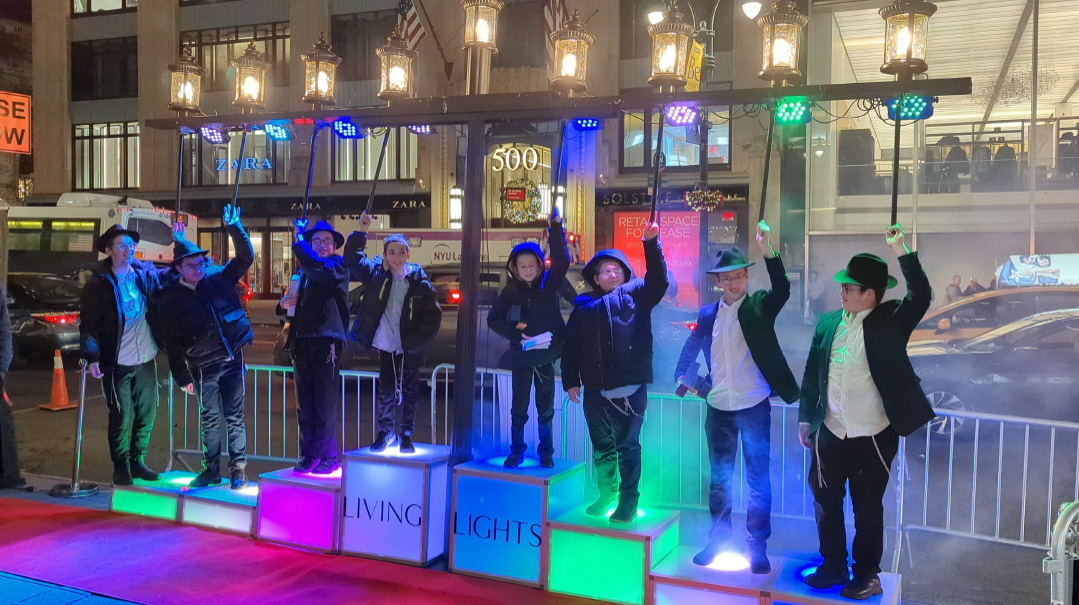Painted into a Corner
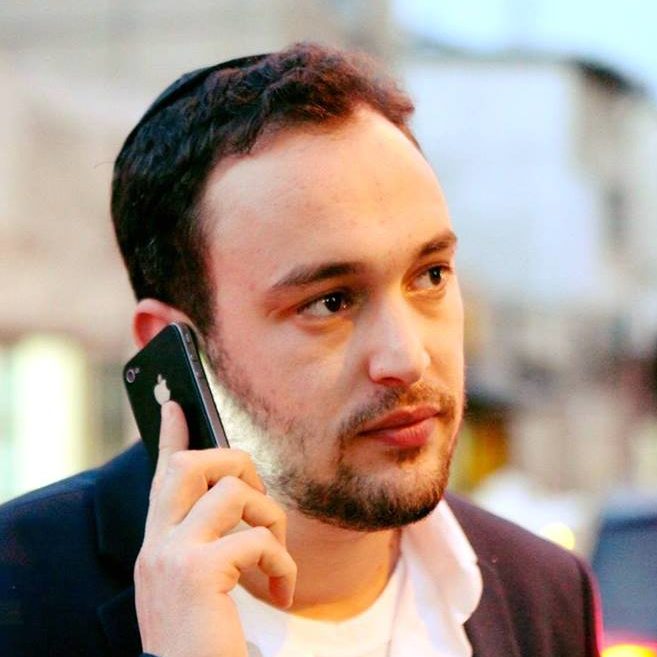
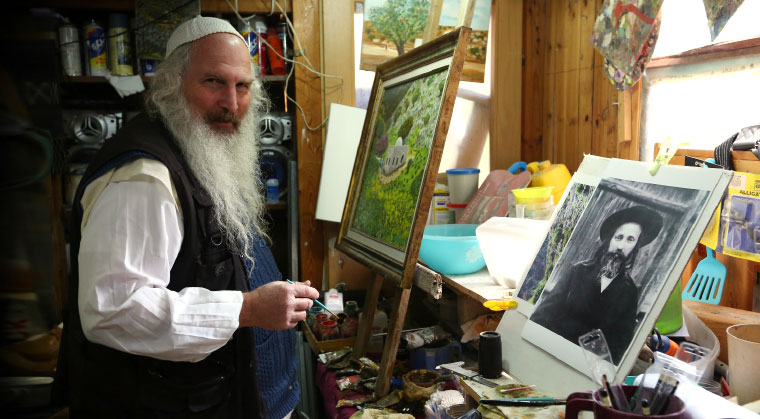
QUIET IMPACT Avisar’s paintings are rich with Jewish motifs. A Jewish man alone in the forest communing with his Creator in solitude. A group of Jews praying in Uman. Landscapes of the Holy Land. “Many of my paintings are hung up in homes of nonreligious families” Avisar continues. “And who can fathom the impact that a painting of Jews dancing on Simchas Torah for example could have on an innocent Jewish child who had never been exposed to a shul on Yom Tov?” (Photos: Yaakov Lederman)
I t took 33 years and one night for artist David Avisar to find Hashem.
It happened quite suddenly one Shabbos in the home of a kind and friendly Jew in the heart of Los Angeles where he experienced for the first time in his life a genuine Shabbos meal. “And then it simply happened” Avisar recalls. “I knew nothing about G-d hadn’t had Him in my life at all was a totally ignorant Jew but right there and then I knew that He was there all along waiting for me to connect with Him and expecting me to do something worthwhile with my life.”
If art reflects a person’s inner world it’s obvious from the richness and variety of David Avisar’s creations that his own life has been a series of twists and turns. A meeting with Avisar in his Beit Shemesh studio — after first clearing out a place to sit amid hundreds of paintings and stunning masterpieces — is an opportunity to view his life through the different styles he incorporates. “Whatever my soul produces — that’s what you’ll find here ” he says.
Avisar’s complex journey through life started in 1955 in Tel Aviv. As his father Yaakov Avisar an Israeli fighter pilot and national hero held his newborn son he had dreams that baby David would follow in his footsteps — never imagining that he alone would fall from public grace and drag his family down too.
The year before Yaakov was appointed commander of the transport and bombing unit of the Israeli Air Force and in 1956 during the Sinai Campaign — the young country’s second war — he was promoted to commander of the squadron that attacked the eastern opening of the Mitlah Pass about seventy kilometers east of the Suez Canal.
Many young warriors emerged as heroes at the end of that short war. But Yaakov Avisar wasn’t one of them. In fact he was booted out of the Air Force over an authority dispute with the El Al pilots who were recruited to battle. And so instead of little David looking up to his hero dad he lived with a father who sat idly at home rejected and dejected.
When David started elementary school in Tel Aviv’s Tzahala neighborhood his classmates were Gur Sharon (Arik Sharon’s late son) Yuval Rabin (son of Yitzchak Rabin) Gideon Tzur (son of Tzvi Tzur the sixth Israeli Chief of Staff) and many other children of Israel’s top brass.
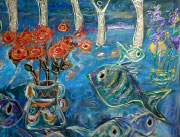
Avisar perceives his work as a tikkun a perfecting of his own soul and at the same time as a tool of disseminating Torah in the world at large
But Avisar says he never integrated with this upper crust and always felt inferior. While his schoolmates seemed to have charmed lives home for David meant constant parental fights and poverty. Yaakov the fallen hero gave up trying to support his family.
“There were times when we barely had a slice of bread at home” Avisar remembers. That coupled with the nonstop fighting made David want to escape — and art he says became his refuge.
“I was always painting ever since I can remember ” he relates. “It was my therapy. At school my performance was nil; I never learned anything but somehow my teachers were kind enough to let me advance from grade to grade even though I don’t think I ever took one test.”
When David was 12 his parents finally divorced and David and his brother went to live with their father who found another job this time as a driving instructor. Yaakov would come every afternoon to pick up his son from school where instead of attending classes David was outside painting and drawing most of the time.
“I was just a kid but I felt as listless and drained as an 80-year-old ” Avisar remembers. “There was one teacher though who somehow believed in me. She knew no high school would accept me so she created a fake report card and got me into an agricultural boarding school. That was a turning point for me. I decided I was going to make a total changeover. I felt like a wilted flower that was finally exposed to sunlight.” Like all Israeli youths upon graduating high school David joined the IDF where he became a paratrooper. “I really wanted to be a pilot like my dad but that was a very disciplined track and I was still too unruly and reckless.” (Excerpted from Mishpacha Issue 653)
Oops! We could not locate your form.

